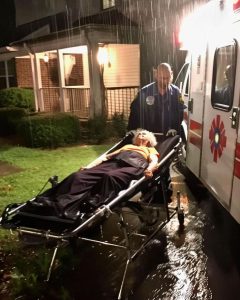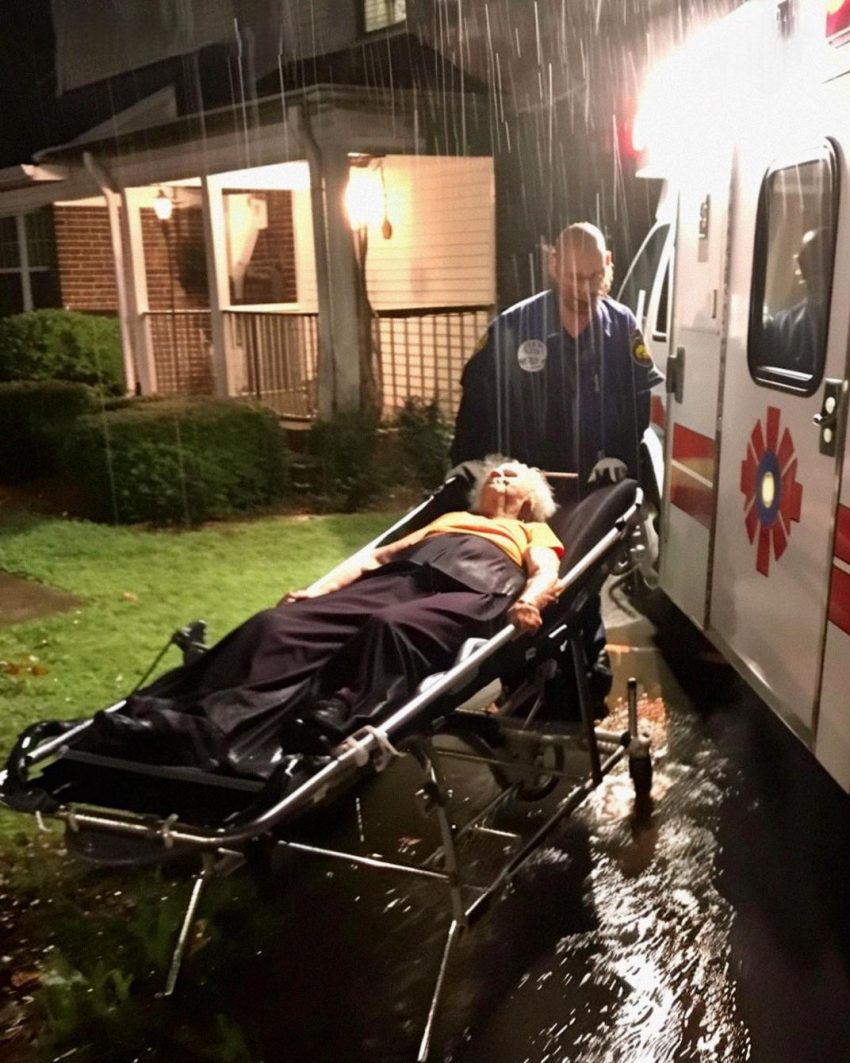When I first got there, I assumed I was merely going to Mrs. Halloway’s house to give her cat food. I didn’t realize it at the time, but I was about to discover a story that had been kept secret for twenty-six years. It was a story of fame, loss, and a family that split apart because they didn’t talk to each other.
Dori is my name. We just relocated to Maple Street, a hamlet in the Midwest where people greet each other from their porches and rumor spreads quicker than the mail. I have two kids and am married. Most people were kind and pleasant, but Mrs. Halloway stayed to herself. She lived in a Victorian house at the end of the block that was falling apart. She always wore old slippers to the mailbox and never let anyone in. People talked about her losses and prior pain, but they didn’t fully know what her life was like. We just knew that an orange tabby cat stood in her window like a lonely guard and that we could hear lovely piano music coming from the house at night.

It all changed that night when there were flashing lights and an ambulance. I went outside without shoes on and saw EMTs bring Mrs. Halloway out on a stretcher. She grabbed my wrist with a lot of force and yelled, “Please…my cat,” through an oxygen mask as they rolled her by. Don’t let her go hungry. I said yes, and once the ambulance left, I stepped into the quiet house. There was dust in the air and white sheets on the furniture.
The cat, in a panic, took me to the sink and cabinet where I had put food and water. After that, I wandered around again. There was a baby grand piano in the living room, and the lid was full of sheet music. Over the fireplace was a black-and-white picture of a beautiful young woman in a beautiful dress singing into a microphone. I halted because I recognized that face. My dad used to say that this vocalist was “the greatest mystery in music” when he played old jazz records with her on them.
I brought daisies to the hospital the next day. She was awake but weak in the calm of room 314. She stopped moving when I informed her I knew the picture and told me to close the door. Then she started to tell me about a life that most people just knew about in a voice that sounded like a thread. She used to be a singer and was well-known for a short time. Her husband was in command of her work and her life. He controlled the money, drew her picture, and told her he would take their daughter away if she left. People said she was crazy when she sought to leave. To protect her child, she fled into hiding. She married Mr. Halloway and cut herself apart from everyone else. She thought her daughter was dead, and soon after that, her husband died too. She listened to music and played with her cat while she was by herself.
I started going every day. She was prideful and touchy at first, and she didn’t want to accept treatment. As time went on, she got nicer. My kids called her “Grandma” when she played the piano for them. I mostly listened, but I also brought food and helped with workouts. I left a comment on an old music site that she could view so she would know I still thought about her. It just took a few hours for messages to come in. People remembered her voice and wanted to know what had happened to her. She assumed people had forgotten about her, but they hadn’t.
She gave me a folded piece of paper on a gloomy afternoon that changed everything. There was an old address and a name she hadn’t used in a long time. She thought her daughter was dead, but the address was familiar; it was in our city and only twenty minutes away. For weeks, I couldn’t decide. Would her daughter want to be found? Did I go too far? In the end, I did something because of the look in Mrs. Halloway’s eyes. I drove to the address and knocked on the door. A woman in her fifties opened the door, and she looked a lot like the first woman. At first, she slammed the door, which made her even angrier. Then I heard a quiet voice from inside asking who I was. Susan was the name of the mom, and Emma was her daughter. She had never met her grandchild before.
Mrs. Halloway cried when I informed her about Emma. She said, “I’m a grandma.” “I had no idea.” She also informed me she was going to die soon and wanted to apologize. I planned a visit, and the reunion was incredibly emotional. Susan had been furious and resentful for a long time, so it was hard for both of them to meet for the first time. But things changed when Emma came in. She was interested and not tired of things. The youngster saw a mother who was vulnerable and wanted to connect with her, not the scars from the past. The hole in the wall let in the truth, an apology, and the start of a weak forgiveness.
Two weeks after that visit, Mrs. Halloway passed away with her cat by her side. Susan and Emma sat in the front row for the funeral. My husband performed the tune we had found on her sheet music, and Emma’s beautiful voice came next. She sang a song that seemed to bring together two generations that had lost touch. At that moment, it seemed like the music that had been gone for a long time had finally come back to the planet.
I remember the night I walked through her open door, believing I was only giving a hungry cat food. Instead, I ended up in a life that required someone to watch over it and a family that needed a little help getting closer to each other. You don’t just have to wave from your porch to be a good neighbor. You may have to sit with someone in the hospital, keep their secrets, and make sure that a story gets the closure it requires.
